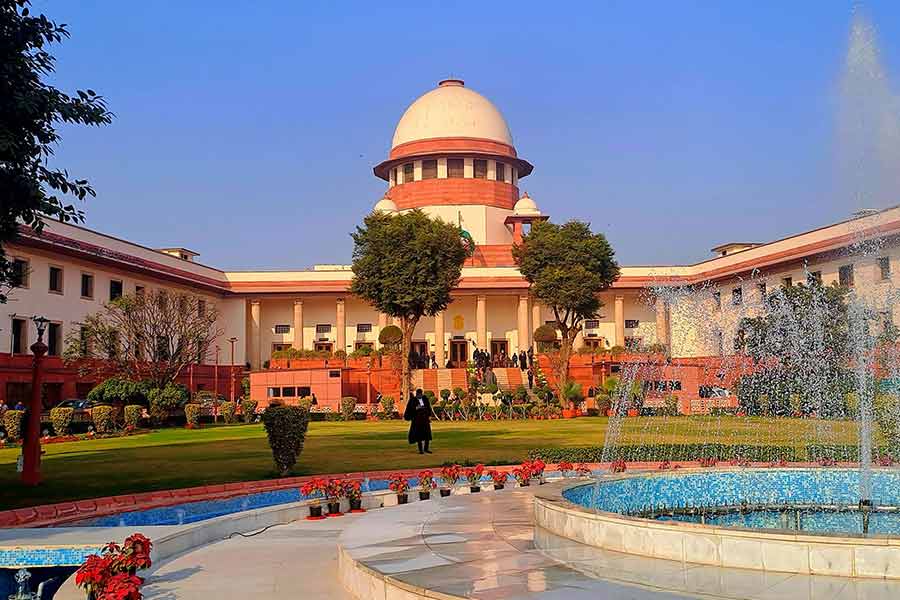The Supreme Court on Friday deferred the question of Aligarh Muslim Unversity's minority status to a new bench and overruled the 1967 judgement that said the university cannot be considered a minority institution since it was created by a central law.
In a majority verdict headed by Chief Justice of India (CJI) D Y Chandrachud, the bench laid down tests for considering the issue of AMU's minority status.
The 4:3 majority judgment authored by CJI Chandrachud, also on behalf of Justices Sanjiv Khanna, J B Pardiwala and Manoj Misra, said, "The view taken in Azeez Basha (1967 verdict) that an educational institution is not established by minority if it derives its legal character through a statute, is overruled." A five-judge Constitution bench in the S Azeez Basha v. Union of India in 1967 said AMU was a central university and couldn't be considered a minority institution.
"The question of whether AMU is a minority educational institution must be decided based on the principles laid down in this judgement," the CJI said.
The outgoing CJI asked the case's judicial records to be placed before the regular bench, after receiving instructions from the CJI on the administrative side, for deciding the issue on the minority status besides adjudicating appeals against a 2006 verdict of the Allahabad High Court.
In January, 2006, the high court had struck down the provision of the 1981 law by which AMU was accorded the minority status.
At the outset, CJI Chandrachud said there were four separate opinions, including three dissenting verdicts.
In a dissenting opinion, Justice Surya Kant said the reference of the matter to a seven-judge bench by a division bench of the apex court was not correct whereas Justice Dipankar Datta echoed a similar sentiment opining it might set a "dangerous precedent".
"A two-judge bench tomorrow may say I doubt the basic structure (Kesavananda Bharati verdict). I refer it to a 15-judge bench. This is what exactly would happen if we accept the majority opinion. Can it be done?" asked Justice Datta.
Justice Datta in the concluding part of his verdict wrote, "In terms of clause 5 of Article 145, it is my firm opinion that not only do the references do not require an answer, it is also declared that AMU is not a minority educational institution and that the appeals seeking minority status for it should fail." Pronouncing a separate opinion on the matter, Justice Satish Chandra Sharma agreed with the two other dissenting judges on the point of reference.
"The establishment of an institution by the minority is necessary for the said minority to claim right of administration under Article 30 (of the Constitution)," he opined.
Article 30 of the Constitution deals with right of minorities to establish and administer educational institutions.
"I would like to make it very clear that my judgement is neither an assenting nor a dissenting judgement. It is my personal opinion based upon the law, the judgements cited and the arguments and the facts on the subject," clarified Justice Sharma.
The issue of AMU's minority status has been caught in a legal maze for the last several decades.
The top court had on February 12, 2019, referred to a seven-judge bench the contentious issue and a similar reference was made in 1981 previously.
The fabled institution, however, got back its minority status when Parliament passed the AMU (Amendment) Act in 1981.
The Congress-led UPA government at the Centre had moved in appeal against the Allahabad High Court's 2006 verdict apart from the university filing a separate petition against it.
The BJP-led NDA government informed the Supreme Court in 2016 that it would withdraw the appeal filed by the erstwhile UPA dispensation.
It had cited the apex court's 1967 judgement in the Basha case to claim that AMU was not a minority institution since it was a central university funded by the government.
Except for the headline, this story has not been edited by The Telegraph Online staff and has been published from a syndicated feed.










